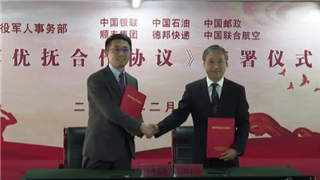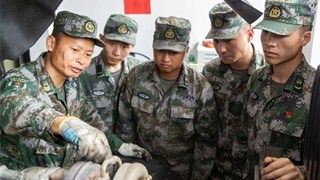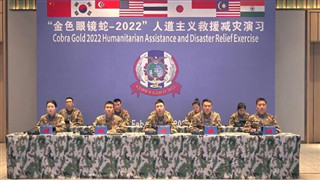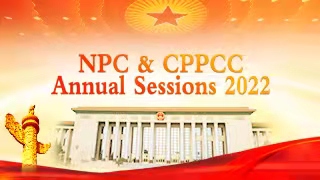By Ong Tee Keat
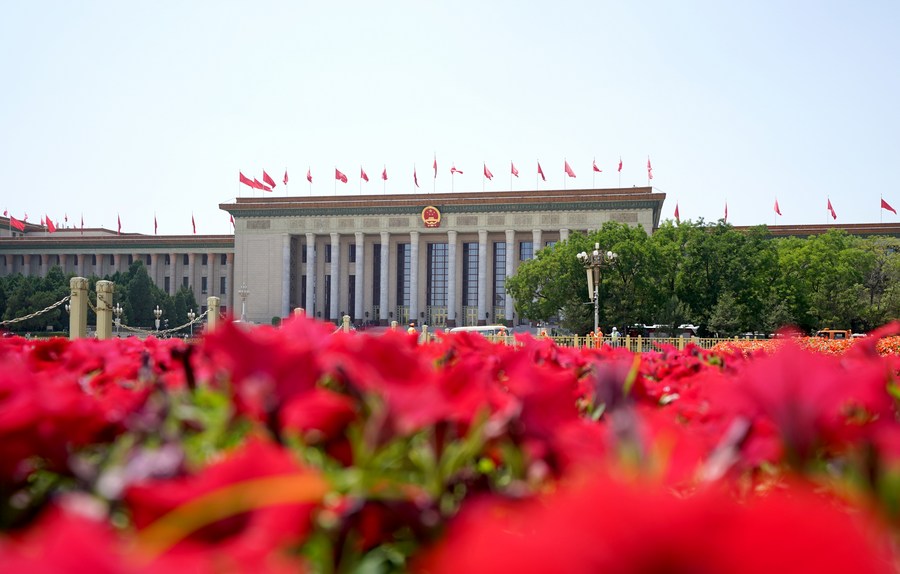
Editor's note: China will hold the annual sessions of the National People's Congress and the Chinese People's Political Consultative Conference National Committee from March 4. Two experts share their views on China's democracy.
For decades, the world has been made to believe that Western democracy is the key to economic success, and market economy is inseparable from democracy. After the end of the Cold War following the collapse of the Soviet Union, Japanese-American political economist Francis Fukuyama even declared that Western liberal democracy is the ultimate form of government for all countries, and there can be no progression from liberal democracy to an alternative system.
Nonetheless, the myth he propagated in his The End of History and the Last Man was short-lived. In fact, it was proven wrong with the emergence of China as a rising economic power after its accession to the World Trade Organization in 2001.
Even after two decades of joining the WTO, China continued with its people-centric governance and has once again proven its economic prowess when it surprised the pandemic-stricken world by emerging as the only major economy to register positive economic growth amid the raging pandemic in 2020. Yet China is not in an enviable position.
West uses democracy as a political weapon
The global hegemonic power, obsessed with its imagined geopolitical rivalry with China, became even more perturbed with China's growing global influence when China's medical supplies, vaccines and experience in fighting the COVID-19 pandemic were immensely sought after across the world. China rose to the call for coordinated international cooperation to fight the contagion. However, its dispatch of humanitarian aid was deliberately distorted by the United States as a covert act of exporting its "authoritarian" model of governance to other countries.
US President Joe Biden has gone even further, describing the US-China relationship as "liberal democracy versus authoritarianism", which is nothing but a battle cry for ideological confrontation and a reflection of the zero-sum game the US has been playing.
Worse, the US resurrected the old label of "authoritarianism" from its Cold War toolbox in its bid to alienate China from the international community. In this perspective, rhetoric of "countering authoritarianism" cloaked in the outfit of democracy has since become a convenient rallying call for the US and its allies to stigmatize China.
Democracy, a shared value of humanity, is not the monopoly of any specific country. Nor should it be weaponized to meet or enhance a country's geopolitical interests. No administration has ever had the carte blanche to impose its desired norms and policies on others in the name of democracy. It remains a choice of polity that allows people's aspiration to determine the mode of governance of a nation in the interest of their well-being. This is made possible through their elected representatives to the legislatures premised on various electoral systems or selection criteria in different countries.
Over the years, the international community has generally accepted the definitions and norms of political systems set forth by the West. Universal suffrage and a multiparty electoral institution with a "check-and-balance" mechanism have been touted as the cornerstone of democracy. But the "one size fits all" model stands to be contested, as democracy has never been homogeneous in form. Nor is it a panacea for all governance problems.
The "one-man, one-vote" electoral institution is not without its flaws. In many countries where multi-party democratic elections are held every four or five years, notably where the "first past the post" system is adopted, gerrymandering of electoral boundaries remains one of the common flaws and key concerns to be addressed.
The spirit of "one-man-one-vote" is greatly at stake when the demarcation of electoral boundaries is deliberately done with unjust weightage in favor of certain parties. This is readily identifiable as in many cases it contributes to the anomalies of popular vote tally incompatible with the number of seats secured, a scenario where a party polling less than 60 percent of the votes commanding more than two-thirds seats in parliament is a classic example of an election fraud. Such fraudulent representation breeds skewed democracy.
While the West placed due emphasis on the power of ballots in the name of practicing "one-man-one-vote", the real participation of the electorate in shaping the nation's governance could hardly go beyond the electioneering process. The post-election policy formulation is almost the monopoly of the legislators, some of whom might be sheer novices bereft of experience and knowledge of public administration. After all, populism is now the key determinant in an election while meritocracy is unabashedly compromised.
Political system used to checkmate rival party
While the system is prevalent-as it is accepted as a common international norm in the world of electoral democracies-the institutionalized "check-and-balance" mechanism in Western democracies appears to be the only "cornerstone" left for their advocates to take pride of.
Habitual rivalry and face-offs among legislators of different political affiliations dominate the parliamentary debate, albeit deemed unproductive in many instances, in the name of "check-and-balance". The mechanism may have been designed with good intentions-to preempt abuse of power-by the founding fathers of Western democracy, but with partisan interests increasingly gaining favor over matters of real concern these days, incessant locking of horns over petty issues of partisan concerns is now a common sight in parliaments. It is indeed a travesty of statecraft. And it would only hurt a country if governance is disrupted.
Parallel to this, in the Westminster's and American Congress' perspectives, filibuster is a permissible act where prolonged speech aimed at obstructing progress in the legislature is no offense, although it comes at the expense of taxpayers' money, as every minute of the proceeding in chamber costs the nation.
The magnitude of such adverse impacts is further amplified in the case of a bicameral legislature which comprises two houses of different sets of members elected or selected through different mechanisms. As both houses have the liberty of making their own decisions on the same bill, it is not uncommon for a bill of State importance, budgetary bill included, to be passed only by one house and torpedoed by the other. In many instances, this is done just to checkmate the ruling party out of partisan interests.
A current case in point, the scrambling for control of both Houses of American Congress, namely the House of Representatives and the Senate, has been so intense that neither of the two major parties, Democrats and Republicans, has ever had a clear majority and confidence in getting their respective sponsored bills passed. Even budgetary bills for infrastructural development have to rely on bipartisan consensus for their ultimate passage. And the meteoric rise of China, much to the chagrin of the US lawmakers, is the only bipartisan bogeyman that could be resurrected to this end.
In other words, the US administration has to secure the Congress' nod for funds to bankroll the country's infrastructure development, largely if not solely by exploiting the US paranoia of being overtaken by China in multiple spheres. This, paradoxically, makes China, the chief challenger to American primacy, the driving force for the US' long overdue infrastructure development.
Such inference may sound somewhat hilarious but the "anguish of displacement" or the "alarm bells" China tends to set off in some US politicians remains the elephant in the room. Beyond the geopolitical rhetoric, the unprincipled abuse of the "check-and-balance" mechanism in the bicameral Congress has ended up making the mechanism itself the biggest obstacle to the funds the country needs, even in times of emergency.
In contrast, China, despite the West vilifying and demonizing its polity, remains totally focused on taking the nation forward and expanding its role in global affairs. The "authoritarian rule" that some Western politicians and media accuse China of practicing is an utterly biased interpretation of the country's governance system, much less a fair evaluation of China's success story in the past four decades since the launch of reform and opening-up.
The West, through its overwhelming dominance of international media, has never ceased to portray China as an autocratic state devoid of a Western-style multi-party electoral system with a "check-and-balance" mechanism. Yet the West appears clueless as to how a purportedly authoritarian government could command an overwhelmingly high level of public support for decades.
Western doomsayers' predictions of an impending Chinese economic crash have time and again proven wrong. Thanks to China's resounding success on multiple fronts which is deemed incompatible with authoritarian rule.
The West, due to its own prejudices and arrogance, is blind to the inherent provision of consultation in China's governance system, which is in stark contrast to the norm of majority rule in Western-style democracy. The latter may appear to have latitude for dissent, but the end result of its decision-making is "winner takes all" regardless of the margin of majority. In contrast, consultative politics appear more inclusive as such a decision-making process can accommodate alternative views.
While the world ushers in a new era of multi-polarity, diversity of governance models across the ideological and cultural spectrum is anticipated and should be accepted with generous latitude for tolerance and inclusiveness.
After all, it's the choice of people that counts. And the level of satisfaction people draw from the governance system they have provides the best barometric measurement of their country's statecraft.
The author is chairman of the Centre for New Inclusive Asia in Kuala Lumpur.
The views don't necessarily reflect those of China Daily.
